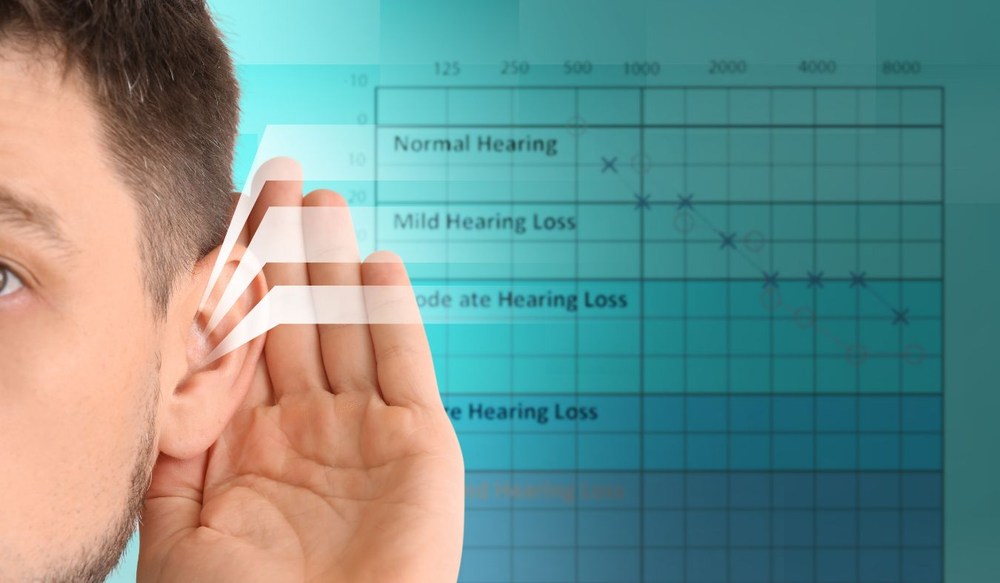How to Advocate for Yourself During a Hearing Test
A hearing test isn’t just something that happens to you while you

By: admin | June 24, 2024
Seasonal changes can influence your hearing in ways you might not expect. The weather and atmospheric pressure shifts that come with each season can have an unexpected impact on your auditory health. This article will delve into the fascinating connection between seasonal changes and hearing, offering insights that could help you maintain optimal hearing health throughout the year. Armed with this knowledge, you’ll be well-equipped to handle any potential issues that might come up with the changing seasons. Let’s delve into how these natural phenomena could affect your auditory system in ways you may not have previously thought about.
Getting a grip on the basics of hearing health is crucial for maintaining optimal auditory function. This involves a combination of understanding how our ears function and how to protect them from potential harm.
Important things to keep in mind include:
Changes in atmospheric pressure can have a significant impact on your hearing. As the barometric pressure changes with the weather, you might notice differences in your auditory perception.
The effect of atmospheric pressure on hearing is a complex phenomenon. When the barometric pressure rises or falls, it can cause changes in the middle ear space which may lead to temporary discomfort or even slight changes in hearing sensitivity. However, these effects are usually short-lived and resolve as your body adjusts to the new conditions.
Being aware of this relationship can help you understand some of the fluctuations in your auditory experiences and reassure you that these are normal reactions to environmental changes. On the other hand, sudden shifts in atmospheric pressure can cause temporary discomfort or slight alterations in hearing sensitivity which might be unsettling for some individuals. It’s important to understand that these effects are generally temporary and not indicative of any long-term damage to your auditory system.
Shifting from atmospheric pressure, let’s now focus on another seasonal factor that can affect your ear health – allergies. Allergies, particularly those that appear in certain seasons like spring and fall, can surprisingly impact your hearing.
Important things to keep in mind include:
As we continue to discuss the seasonal factors affecting your hearing, it’s important to consider the effects of cold weather. Winter brings with it not only frosty temperatures but also potential issues for your auditory health.
Understanding how cold weather impacts your hearing can help you take preventative measures. By keeping your ears warm and dry, you can reduce the risk of ear infections. If you wear hearing aids, protecting them from extreme temperatures and moisture is vital to maintain their functionality. Knowledge about these effects of winter on your auditory health can empower you to maintain optimal hearing during the colder months.
Having discussed the effects of cold weather, it’s only fair to turn our attention to the other end of the spectrum – summer heat. It might surprise you to learn that high temperatures can also influence your ear health in unique ways.
Hot weather can lead to increased sweating, which in turn can cause moisture build-up in your ears. This damp environment is a breeding ground for bacteria, potentially leading to ear infections. Moreover, frequent swimming during summer months increases the risk of swimmer’s ear, a common type of outer ear infection. By being aware of these risks and taking appropriate preventative measures like drying your ears thoroughly after swimming or sweating, you can enjoy the summer season without compromising on your hearing health. Stay tuned for more tips on how to protect your hearing throughout the year!
As we leave behind the chill of winter and welcome the blossoming beauty of spring, your auditory system also faces some unique challenges. Springtime brings with it a host of factors that can affect your hearing health in unexpected ways.
One common issue during spring is the increased pollen count, which can exacerbate seasonal allergies. As we’ve discussed earlier, these allergies can lead to sinus congestion and inflammation, indirectly affecting your ears and potentially causing temporary hearing loss. Therefore, managing your allergies effectively is vital during this season.
Another aspect to consider is the fluctuating weather conditions typical of springtime. Sudden changes in atmospheric pressure due to shifting weather patterns can cause temporary discomfort or slight alterations in hearing sensitivity. However, rest assured that these effects are generally short-lived and not indicative of any long-term damage to your auditory system.
Have you ever pondered how the autumn season could influence your hearing? As we transition from the warmth of summer to the crisp, cool days of autumn, it’s worth considering how this shift might affect your auditory health.
Autumn is known for its fluctuating temperatures and changing weather patterns. These shifts can lead to changes in atmospheric pressure, similar to what we discussed in relation to springtime. You might experience temporary discomfort or slight alterations in hearing sensitivity due to these pressure changes. But don’t worry – these effects are usually short-lived and not indicative of any long-term damage.
Additionally, autumn is often a time when common colds and flu start to circulate more widely. These illnesses can cause congestion and inflammation in your sinuses, which can indirectly affect your ears. Keeping healthy during this season by getting a flu shot, maintaining good hand hygiene and staying active can help protect your overall health as well as your hearing.
As we continue our discussion on seasonal factors affecting your hearing, let’s focus on another important aspect – humidity changes. Similar to temperature and atmospheric pressure, changes in humidity can also impact your ears and hearing health.
As we’ve seen, each season brings its own set of challenges and changes for your auditory health. But how can you tell if your hearing is being affected by these seasonal shifts? Recognising the signs of seasonal hearing shifts is an important step in maintaining optimal hearing health.
There are a few indicators that might suggest your hearing is being influenced by the changing seasons. These could include:
As we transition from identifying signs of seasonal hearing shifts, it’s vital to discuss how you can safeguard your hearing during these changes. Seasonal transitions can be a challenge for your auditory health, but with the right knowledge and strategies, you can protect your hearing effectively.
One important strategy is to maintain regular check-ups with your audiologist. They can monitor any changes in your hearing and provide advice tailored to the specific challenges of each season. Additionally, keeping your ears clean and dry, managing allergies effectively and protecting your ears from extreme temperatures are all key measures that can help maintain optimal auditory health throughout the year.
Just as you would consult a doctor when you’re feeling unwell, it’s important to seek advice from a hearing specialist if you notice changes in your hearing. Consider it this way: If your car starts making strange noises or isn’t running as smoothly as it should, you wouldn’t hesitate to take it to a mechanic. Similarly, if your ears are giving you trouble or your hearing isn’t quite right, a visit to the audiologist is the logical next step.
Sometimes, the signs may not be glaringly obvious. You might find yourself turning up the volume on your TV more than usual or asking people to repeat themselves more often. These could be subtle indications that something’s amiss with your hearing. In such cases, don’t ignore these signs – just like an early oil change can prevent major car troubles down the line, early detection and treatment of hearing issues can help maintain optimal auditory health in the long run.
Maintaining excellent hearing health throughout the year can sometimes feel like a daunting task. Seasonal changes, varying humidity levels and fluctuating temperatures all present unique challenges to your auditory system. However, a good strategy to tackle these challenges is to stay proactive about your hearing health. Regular check-ups with your audiologist, protecting your ears from extreme weather conditions and managing allergies effectively are all steps you can take to ensure optimal auditory health year-round.
Understanding the relationship between seasonal changes and hearing health can have numerous benefits. It equips you with the knowledge needed to anticipate potential issues before they arise and take appropriate preventative measures. This understanding can lead to fewer surprises related to your auditory health and greater control over maintaining it throughout the year. In turn, this could contribute positively towards your overall quality of life by ensuring that you continue enjoying the sounds of each season without compromise.
Remember, proactive care is key when it comes to preserving your hearing health amid seasonal shifts. At Hearing Wellness Centre, our dedicated team of audiologists is always ready to assist you. Whether it’s understanding the complexities of atmospheric pressure changes or managing seasonal allergies, we are here to provide personalised advice and solutions tailored to your needs.
If you’ve noticed any changes in your hearing or simply want more information about maintaining optimal auditory health throughout the year, don’t hesitate to reach out. You can contact us at our Windsor, ON location on (844) 663-9433. We look forward to helping you enjoy the sounds of each season with confidence and ease.

A hearing test isn’t just something that happens to you while you
By: admin | October 20, 2025

Summer is a time for outdoor barbecues, beach trips and long walks in the
By: admin | July 29, 2025

When you find yourself asking people to repeat themselves more frequently
By: admin | June 20, 2025
